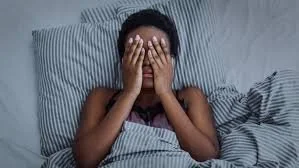Acupuncture for Insomnia
/Insomnia affects a significant portion of the population and can have a detrimental impact on overall well-being. While conventional treatments for insomnia often involve medication, acupuncture can be more effective with fewer adverse effects. Here’s why.
• Regulation of Neurotransmitters and Hormones: Acupuncture stimulates specific points on the body which are believed to release neurotransmitters and hormones beneficial for sleep, such as serotonin, melatonin, and gamma-aminobutyric acid (GABA). These substances play crucial roles in promoting relaxation, regulating the sleep-wake cycle, and reducing anxiety, which are essential for restful sleep.
• Stress Reduction and Relaxation: Acupuncture has been shown to stimulate the release of endorphins, natural pain-relieving and mood-enhancing chemicals. This stimulation helps reduce stress, promote relaxation, and alleviate symptoms of anxiety and depression, all of which can significantly improve sleep quality.
• Regulation of the Central Nervous System: Acupuncture has been found to activate the parasympathetic nervous system, which plays a vital role in sleep regulation. By modulating brain activity, acupuncture helps restore the balance between arousal and sleep-promoting mechanisms.
• Individualized Treatment Approach: Each person's unique pattern of symptoms and underlying imbalances are considered when designing treatment plans. By addressing specific imbalances in the body, acupuncture aims to restore harmony and optimize overall well-being, which contribute to better sleep.
Through its influence on neurotransmitters, hormones, stress reduction, and the central nervous system, acupuncture restores balance and promotes restful sleep.
Ready to try it? David Blatt, LAc, offers acupuncture for insomnia at his City Park location. Anticipate 3-5 treatments one week apart to achieve desired results. Schedule now.
References:
Spence DW et al. (2004). Acupuncture Increases Nocturnal Melatonin Secretion and Reduces Insomnia and Anxiety: A Preliminary Report. Journal of Neuropsychiatry and Clinical Neurosciences, 16(1), 19-28.
Eshkevari L et al. (2013). Acupuncture at ST36 Prevents Chronic Stress-Induced Increases in Neuropeptide Y in Rat. Experimental Biology and Medicine, 238(6), 665-672.
Cao H et al. (2009). Acupuncture for Primary Insomnia: A Systematic Review of Randomized Controlled Trials. Sleep Medicine, 10(8), 913-921.
Yeung WF et al. (2009). Acupuncture for Insomnia. Cochrane Database of Systematic Reviews, (3), CD005472.


